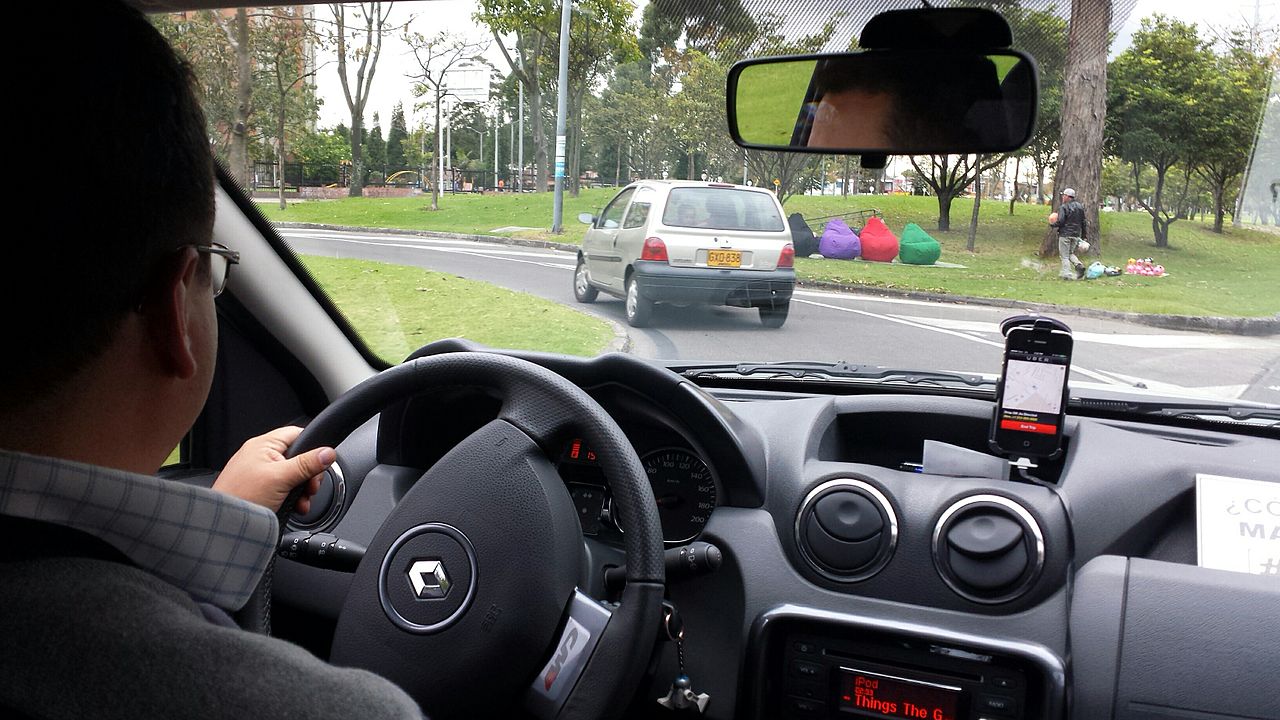If you ever ride a cab in Madrid, you can be sure of having an entertaining and engaging conversation with the taxi driver about everything from sports to politics and from business to philosophy. Last year, during one of my visits to Madrid, I had an interesting conversation about Uber with the taxi driver.
During those days taxi drivers were holding protests against Uber. I started talking about this opposition and protests against Uber. I was curious to know his personal point of view. His principal argument was that when every cab driver spends a lot of money in getting all the requisite permissions and licenses to get into the profession and earn a living, how can a company pass by all these regulatory barriers and do what they want? He made his argument passionately and I learnt quite a lot about how regulated the Taxi market is.

When we reached the destination and I was about to get out of the taxi he added, “And you still have to think about the safety. If I steal your money right now, you can always find me, sue me and punish me and my company. What if an Uber driver loots, beats or rapes the client?” It sounded a bit exaggerated to me back then, but a few months later an Uber driver was accused of rape by a woman in Delhi. However this was just an addition to a tirade of negative publicity that Uber was receiving over some period. Today Uber is an innovative startup that has within a few years reached valuation of $40 Bn, but also has been subject to huge criticism for various reasons. Here is a list of lessons that can be learnt from Uber – a list of errors that an entrepreneur should avoid.
1. Keep your Business Models Socially Sensitive
One of the factors in Uber’s early success was its innovative business model and resulting comparatively lower tariffs. Uber has an algorithm that calculates the tariff. However, during periods of high demand the prices surge. This model makes absolute economic sense and it also compensates drivers according to the market condition. However, business models should not just make economic sense but should be socially sensitive as well. Any business model that is not flexible enough to the extent of causing harm (even unintentional) to its clientele or society at large is not a good business model.
During Sydney hostage crisis in December 2014, Uber committed one of its worst mistakes. When an armed terrorist took several hostages in a café in Sydney’s central business district, many people working in the area started asking for Uber’s services to flee the zone and reach their homes safely. Unfortunately Uber’s algorithm started showing its effect and at one point Uber was charging almost 100 Australian Dollars for a ride which was about four times the normal rate. Uber backtracked and in fact later on even offered free rides to whosoever wanted to get out of that area. However, by that time the harm had already been done and Uber was already criticized for not having enough foresight for such situations.
2. Learn and Remember
The surge pricing during Sydney hostage crisis also showed another big loophole that the company has in its learning systems. During July 2014, Uber indeed had agreed to put a cap on its prices during ‘abnormal disruptions of the market’ like natural disasters, in the state of New York. Uber probably didn’t have a similar agreement in place in other regions. However, a visionary organization learns from its experiences and especially when you are operating in a multinational set-up , learning from one region should benefit operations of other regions. State of New York, negotiated an agreement with Uber, which Uber should voluntarily have had in place across all its operating regions.
3. Let your growth be driven by Values
When a lady accused an Uber driver of rape in Delhi, Uber’s system of background checks of its drivers came under scanner. In india, several protesters accused Uber of being lax in their safety standards in the region. This became even more evident when it came to light that the driver, Shiv Kumar Yadav who was accused of rape, had been jailed just two years ago on sexual assault charges. While Uber had aggressively pursued a strategy of growth, they had completely overlooked potential pitfalls in their control systems. Control system of an organization is also at times a reflection of values the organization abides by . Had Uber kept customer safety as a paramount value, they would have had the foresight of having a better system.
Did Uber learn anything from this incident? Well, look at what happened later. Once Uber came under fire, the Government of Delhi cancelled Uber’s license citing it had not acquired the requisite Radio Taxi license. After sometime, Uber made fresh application and got the license. And in a very insensitive manner Uber sent an email to the rape victim, announcing that it had returned to Delhi.
4. Be disruptive with technology but humble in your attitude.
Uber is a revolutionary idea and has challenged established interests, across the world in an estimated $11 Bn – global Taxi market. However, that’s what a startup like Uber should be focused on. Creating a disruptive innovation and stay focused on it. However, when Uber was under attack for all the wrong reasons, across the world, and Uber was trying to improve its image, Buzzfeed appeared with an explosive story where Emile Michael, an executive at Uber, was quoted suggesting “...that the company should consider hiring a team of opposition researchers to dig up dirt on its critics in the media — and specifically to spread details of the personal life of a female journalist who has criticized the company.”
Uber’s top brass has consistently been labeled arrogant and aggressive. It’s one thing to be competitive and it’s a totally different thing to be ‘at war’ all the time. An entrepreneur has to understand that people and society provide the base on which startups flourish, they are not enemies. In fighting against society, startups end up committing hara-kiri.
Uber is a young organization. They have to fight a long battle with regulators and established taxi professionals all over the world. In this struggle, one factor that can really help Uber is people – its clients, collaborators and society-at-large. Uber has to understand this. Not only Uber, but every startup needs to understand the importance of public impression and public support. Technologies, algorithms and business model can be copied, replicated and replaced, not the goodwill. If you are a young entrepreneur and wish to learn from Uber, learn one thing, “Be nice, don’t be Uber”.



uber validates my point that robots cannot take over human work as they are dispassionate, its going to come into play very soon with google’s driver less cars. i agree with the point on growing with ur values, i think uber does not have a engrained value system, it was all about making money as fast as possible using their disruptive technology
i think uber as a disruptive technology is just facing a lot of opposition just like what the likes of Google faced when they started. people are afraid of disruptive innovation